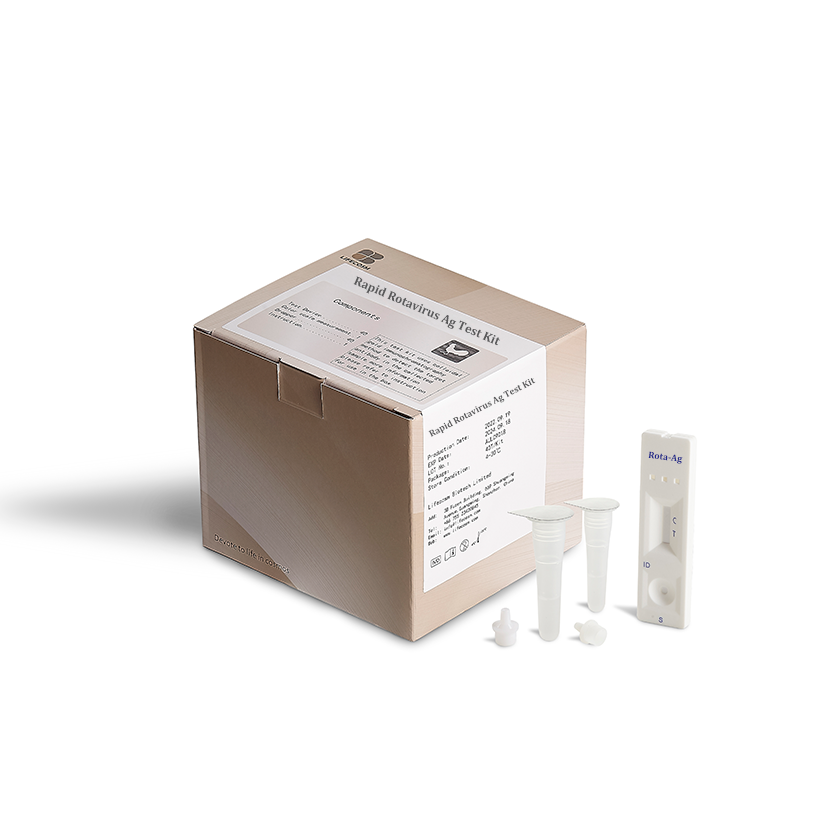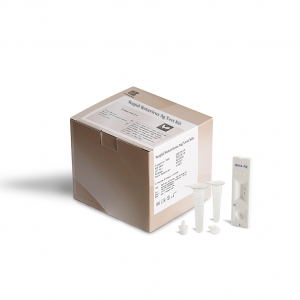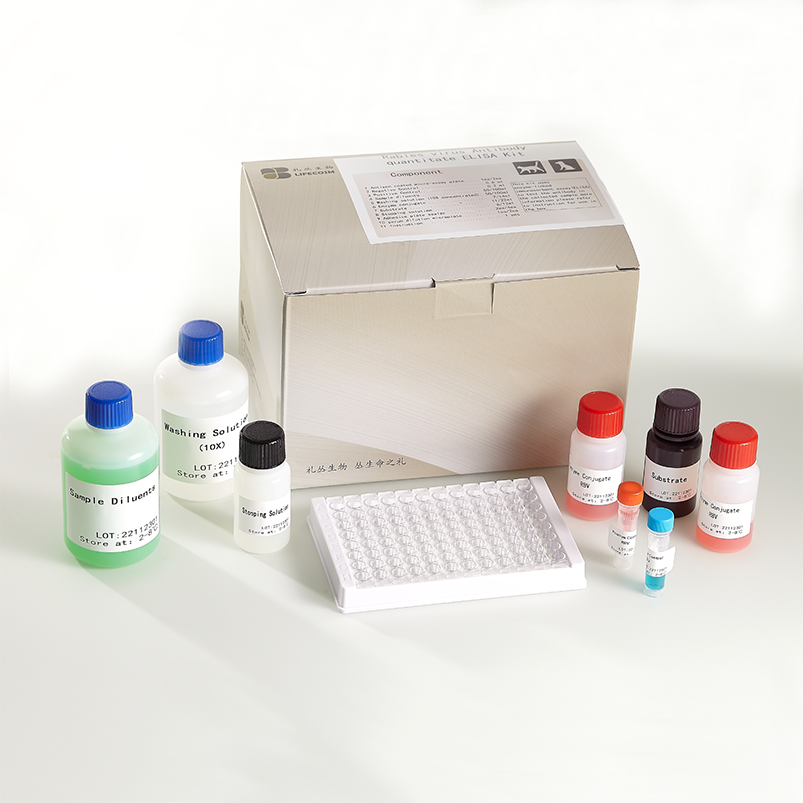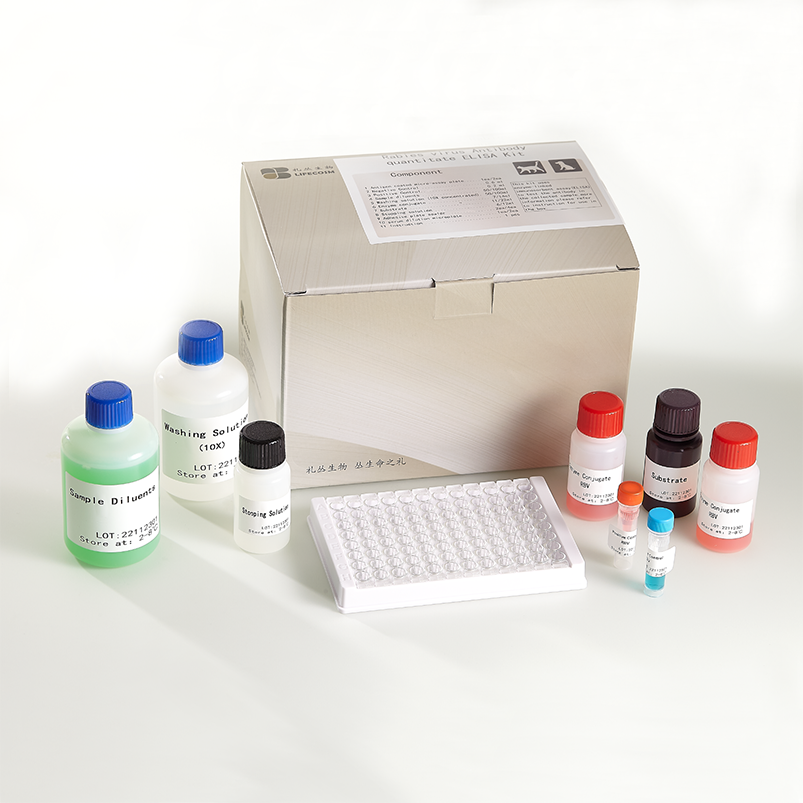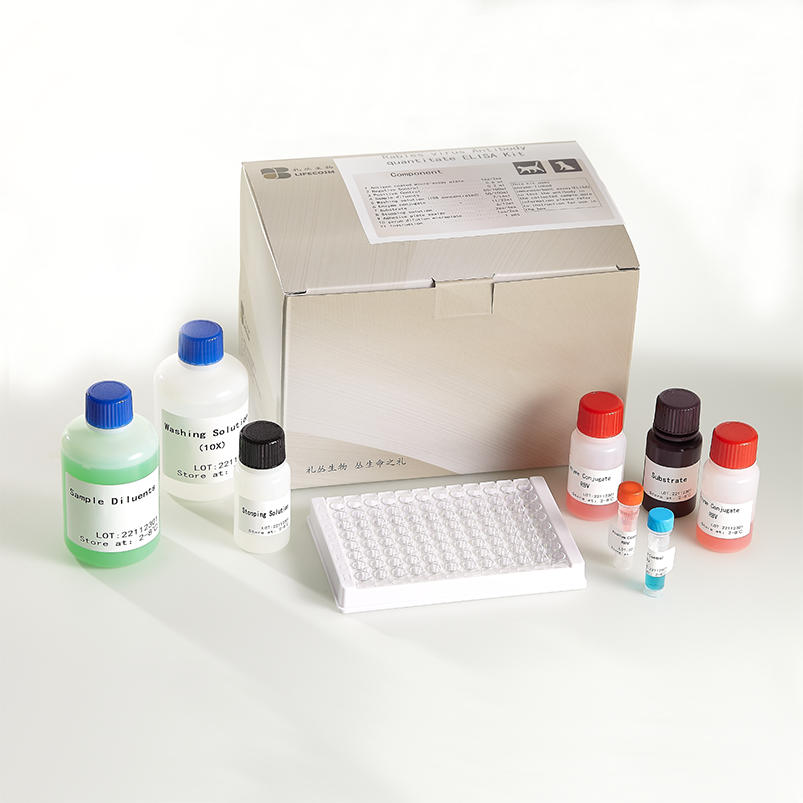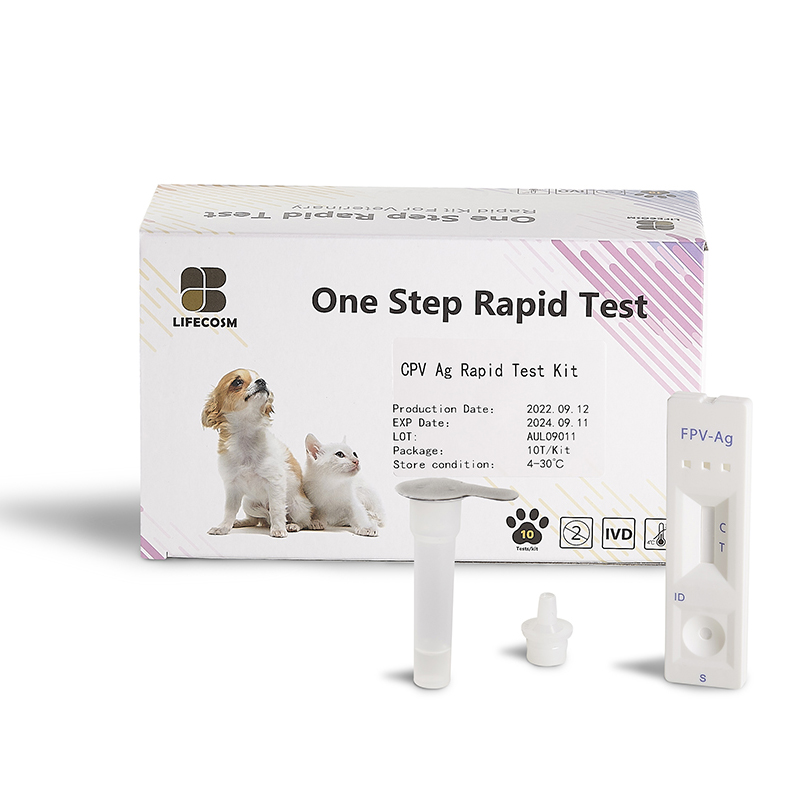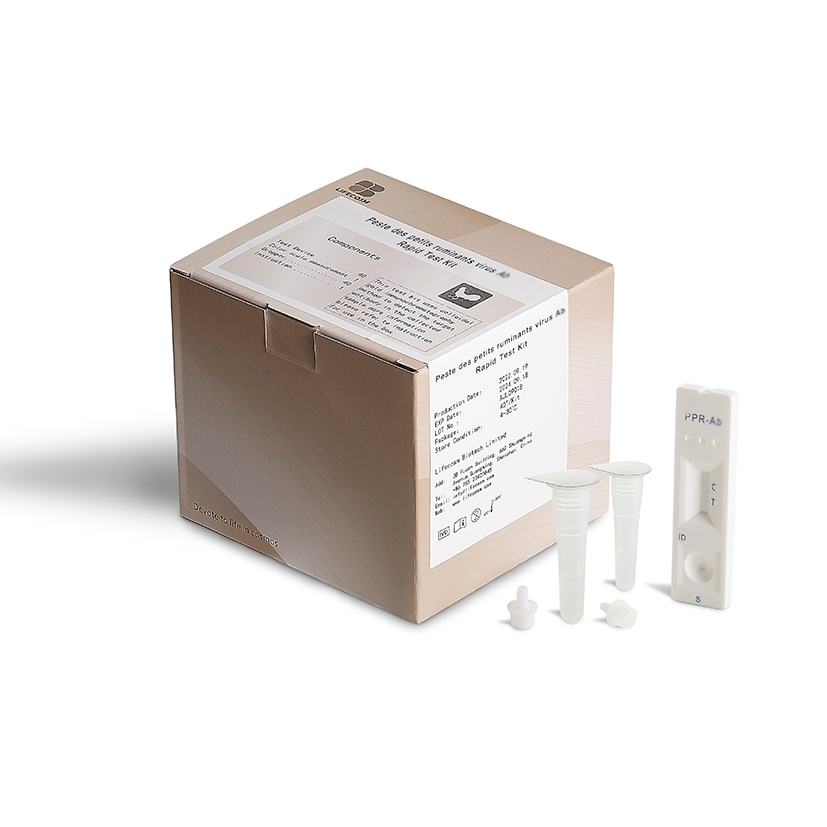
Products
Lifecosm Rotavirus Ag Test Kit for veterinary diagnostic test
Rotavirus Ab Rapid Test Kit
| Summary | Detection of specific Antibody of Rotavirus within 15 minutes |
| Principle | One-step immunochromatographic assay |
| Detection Targets | Rotavirus antibody |
| Sample | Feces
|
| Reading time | 10~ 15 minutes |
| Quantity | 1 box (kit) = 10 devices (Individual packing) |
| Contents | Test kit, Buffer bottles, Disposable droppers, and Cotton swabs |
|
Caution |
Use within 10 minutes after opening
Use appropriate amount of sample (0.1 ml of a dropper) Use after 15~30 minutes at RT if they are stored under cold circumstances Consider the test results as invalid after 10 minutes |
Information
Rotavirus is a genus of double-stranded RNA viruses in the family Reoviridae. Rotaviruses are the most common cause of diarrhoeal disease among infants and young children. Nearly every child in the world is infected with a rotavirus at least once by the age of five. Immunity develops with each infection, so subsequent infections are less severe. Adults are rarely affected. There are nine species of the genus, referred to as A, B, C, D, F, G, H, I and J. Rotavirus A, the most common species, causes more than 90% of rotavirus infections in humans.
The virus is transmitted by the faecal-oral route. It infects and damages the cells that line the small intestine and causes gastroenteritis (which is often called "stomach flu" despite having no relation to influenza). Although rotavirus was discovered in 1973 by Ruth Bishop and her colleagues by electron micrograph image and accounts for approximately one third of hospitalisations for severe diarrhoea in infants and children, its importance has historically been underestimated within the public health community, particularly in developing countries. In addition to its impact on human health, rotavirus also infects other animals, and is a pathogen of livestock.
Rotaviral enteritis is usually an easily managed disease of childhood, but among children under 5 years of age rotavirus caused an estimated 151,714 deaths from diarrhoea in 2019. In the United States, before initiation of the rotavirus vaccination programme in the 2000s, rotavirus caused about 2.7 million cases of severe gastroenteritis in children, almost 60,000 hospitalisations, and around 37 deaths each year. Following rotavirus vaccine introduction in the United States, hospitalisation rates have fallen significantly. Public health campaigns to combat rotavirus focus on providing oral rehydration therapy for infected children and vaccination to prevent the disease. The incidence and severity of rotavirus infections has declined significantly in countries that have added rotavirus vaccine to their routine childhood immunisation policies

